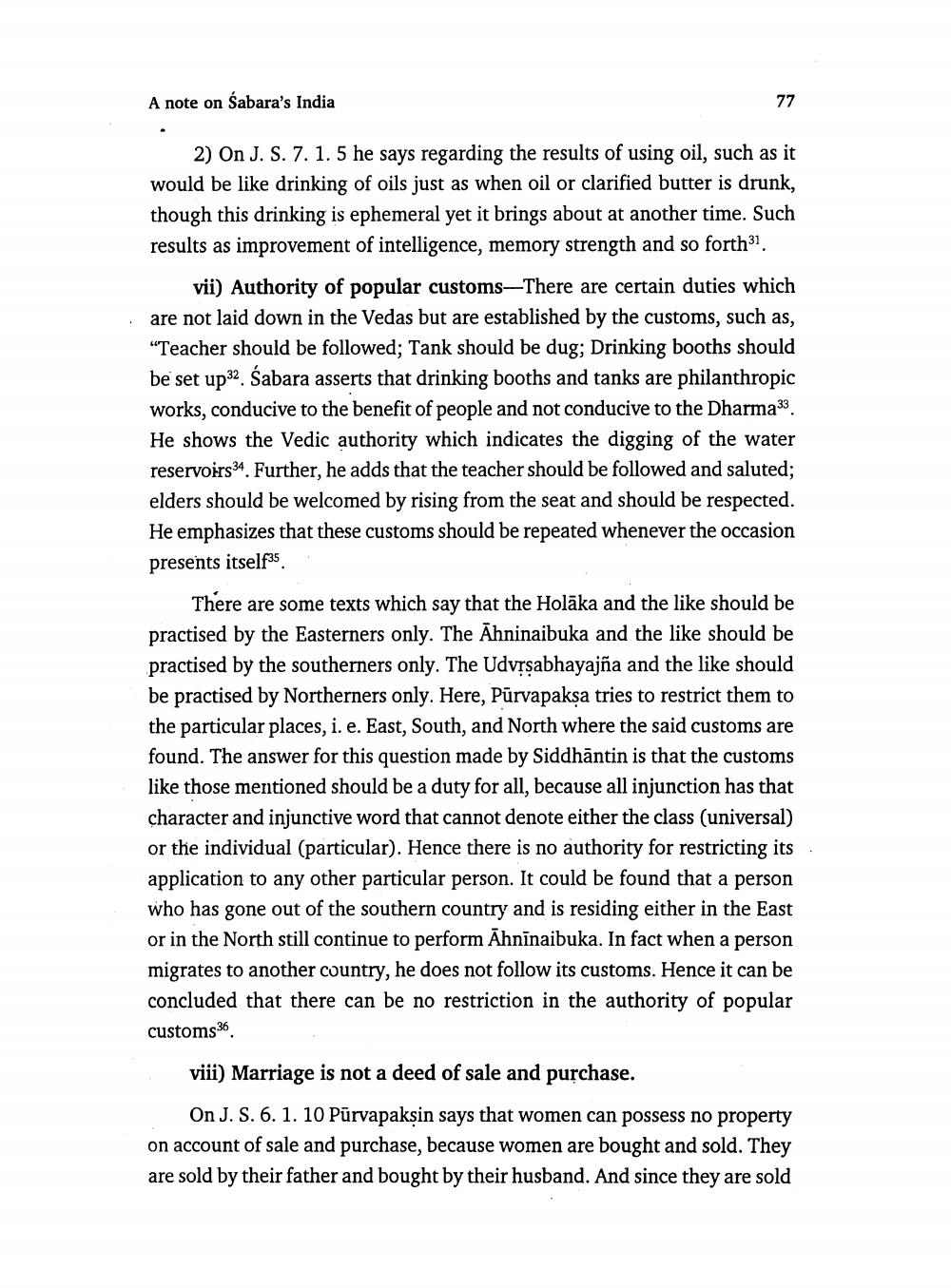________________
A note on Sabara's India
77
2) On J. S. 7. 1. 5 he says regarding the results of using oil, such as it would be like drinking of oils just as when oil or clarified butter is drunk, though this drinking is ephemeral yet it brings about at another time. Such results as improvement of intelligence, memory strength and so forth31.
vii) Authority of popular customs—There are certain duties which are not laid down in the Vedas but are established by the customs, such as, "Teacher should be followed; Tank should be dug; Drinking booths should be set up32. Sabara asserts that drinking booths and tanks are philanthropic works, conducive to the benefit of people and not conducive to the Dharma33. He shows the Vedic authority which indicates the digging of the water reservoirs 34. Further, he adds that the teacher should be followed and saluted; elders should be welcomed by rising from the seat and should be respected. He emphasizes that these customs should be repeated whenever the occasion presents itself35
There are some texts which say that the Holāka and the like should be practised by the Easterners only. The Āhninaibuka and the like should be practised by the southerners only. The Udvrsabhayajña and the like should be practised by Northerners only. Here, Pūrvapaksa tries to restrict them to the particular places, i. e. East, South, and North where the said customs are found. The answer for this question made by Siddhāntin is that the customs like those mentioned should be a duty for all, because all injunction has that character and injunctive word that cannot denote either the class (universal) or the individual (particular). Hence there is no authority for restricting its application to any other particular person. It could be found that a person who has gone out of the southern country and is residing either in the East or in the North still continue to perform Āhnīnaibuka. In fact when a person migrates to another country, he does not follow its customs. Hence it can be concluded that there can be no restriction in the authority of popular customs 36
viii) Marriage is not a deed of sale and purchase.
On J. S. 6. 1. 10 Pūrvapakṣin says that women can possess no property on account of sale and purchase, because women are bought and sold. They are sold by their father and bought by their husband. And since they are sold




